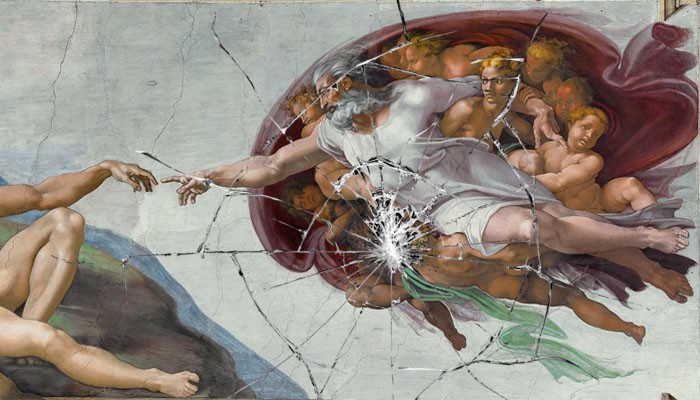Religion
Faith and superstition are not harmless
Critics of faith and superstition are often accused of intolerance and radicalism. But should we really be tolerant of everything? Are faith and superstition really harmless as some like to claim? How do we avoid the tolerance of intolerance? Should we leave the faithful and superstitious alone or should we fight for a world where these are things of the past and everybody is shocked they were ever socially accepted?
Why I’m not a theist
As far into my childhood as I can remember, I believed in a god. It was a personal god, who answered to prayers, cared for mankind, etc. As I grew older, I started being curious about the world and reflecting about life. When I was very young I would occasionally pray for childish things such as superpowers, and my prayers obviously weren’t heard. If I was anxiously waiting for a family visit, for example, I prayed for the “next car to show up in the road to be them”. Of course, it “worked” sometimes, but mostly it didn’t.Read More »Why I’m not a theist
The burkini ban and the dangers of political polarization
As everybody knows, last month France started enforcing an extremely controversial ban against the so called “burkini”. The ban was eventually overturned, but the debate is still very much alive. In the age of social media, when we all live in echo chambers ¹, I still haven’t had a chance to talk to a person who is actually in favor of the burkini ban. But the mere mention that “it’s hypocritical to display so much outrage towards this and then turn a blind eye to the culture of forced modesty in Muslim communities around the world” or that “I can understand why this ban appeals to the masses” is already enough to trigger some progressive liberals and turn them into paranoid anti-Islamophobia police (or, as Maajid Nawaz would call them, regressive leftists).Read More »The burkini ban and the dangers of political polarization
Is freedom of speech really the issue?
Worse than hearing bad arguments from your opposer is hearing bad arguments from people on your side. And of course it shouldn’t surprise anyone that, after a hideous international event, heated outbursts of emotionally charged arguments will pour from the skies like a tropical summer rain from all sides. It has actually come to a point where I wonder if it makes sense at all to even say anybody is on my side. After all, what are the sides? Feeling compelled to take one of supposedly two sides in a complex situation is simplistic and unrealistic in itself. Of course, the Charlie Hebdo attackers were unjustifiably violent and their brutality is not even remotely comparable to any damage the newspaper may possibly have done to society. But does that really make the cartoonists the martyrs many are treating them as? Heroes in the battle to defend our most sacred value: freedom of speech? On the other extreme, is it really the best moment to accuse the cartoonists as Islamophobic racists who had it coming? And most importantly: should we be focusing on them at all?
Read More »Is freedom of speech really the issue?
Atheism is becoming politically incorrect and we have to stop it
The atheist movement has seen a somewhat recent boom. Some say it was triggered by the 9/11 attacks and call it the “New Atheism” movement. There are many great things about atheists speaking out and forming a community. It encourages other people to “come out of the closet”, it raises awareness about discrimination against religious minorities, mob rule, threats to secularism etc. On the other hand, many criticize the movement for its aggressiveness, arrogance and lack of diplomacy. Some even claim that atheists shouldn’t be outspoken at all. They say they’re being more religious than the believers they criticize, and attack any atheist association as being hypocritical and turning atheism into a cult.Read More »Atheism is becoming politically incorrect and we have to stop it
Moralism and Religious Intolerance
Atheists are often accused of arrogance and prejudice against religions. Sentences like “Each to their own”, “What is the problem with believing in God?”, “Religion is personal” are always used to defend religion. In this text I explain the cause to my opposing religion and how, in some cases, the mere existence of religious persons may have negative consequences to the construction of a just and equalitarian society.Read More »Moralism and Religious Intolerance






